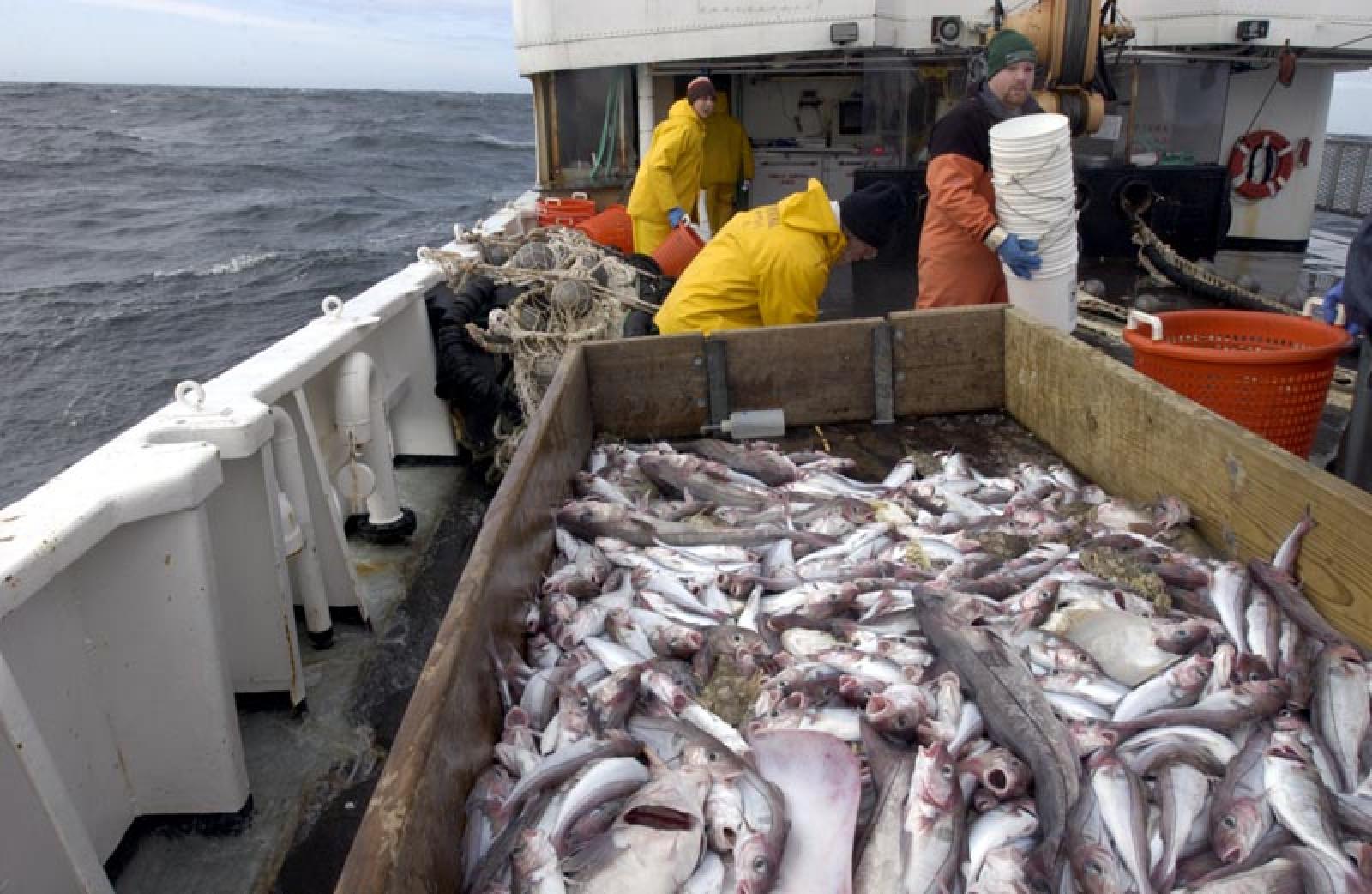With the New England groundfishery now a bona fide federal disaster, fisheries managers are preparing to make drastic cuts to future allotments for cod and yellowtail flounder before the end of the year.
On Dec. 20 the New England Fishery Management Council will meet in Wakefield and is expected to cut up to 80 per cent of fishing allotments for cod and yellowtail flounder for the coming year. If they are approved, the cuts will take effect May 1, 2013.
“They can’t find the cod,” said Tom Dempsey, a member of the New England council and a policy director for the Cape Cod Commercial Hook Fishermen’s Association based in Chatham. Mr. Dempsey said 75 per cent of the cod that has been allotted to fishermen for this year still hasn’t been caught. “It is not there to catch,” he said.
In September acting U.S. Secretary of Commerce Rebecca Blank formally declared the New England groundfishery a federal disaster. The declaration is expected to lead the way to relief funding in the coming year for the formerly-vibrant fishery that has been crippled by depleted stocks.
Cod and yellowtail flounder, once the predominant fish in the waters off New England, are so scarce that fisheries managers say they now plan to cut further into fishermen’s allotment for the coming year.
More than ever, fishermen and scientists are in agreement that the local cod has disappeared.
“I think in New England the fishermen have said over and over again that the government fisheries scientists were wrong. This is a different story,” Mr. Dempsey said. “We have fishermen who have built their industry on catching cod on Georges Bank and they can’t find it anymore,” he added.
“Overall, we agree with the science — that abundance is low,” said David Pierce, another member of the New England council and deputy director of the state Division of Marine Fisheries. “We agree with what the fishermen have said, that there seems to be a climate effect that is seriously handicapping or hindering ability to bring back the cod. It is likely water temperature,” he said, adding: “It is already happening to lobsters.” Scientists have found evidence that warming waters around the Cape are affecting the lobster fishery which has moved north. “This is bound to be impacting the fish, too,” Mr. Pierce said.
Already a third of the fishing grounds off New England are closed due to protection measures for juvenile fish that have been put in place over the past 20 years. Georges Bank, the primary fishing area for the groundfish fleet, covers an area roughly the size of Massachusetts.
Cuts in the groundfishery over the last two decades have had a profound effect on Vineyard fishermen. Gregory Mayhew, who owns the Menemsha dragger Unicorn, said he has not fished for cod or yellowtail flounder in two years. His annual quota for the two species has been reduced so severely that he can only fish for about five days a year. Mr. Mayhew said the only fishing he did this year in Unicorn was for squid. To keep his permits active, he leases them out. Further cuts in cod and yellowtail flounder allotments will reduce the value of the permits, Mr. Mayhew said.
“I think this is going to be an historic moment for us,” said Rip Cunningham, the chairman of the New England council who has served for nine years, referring to the upcoming Dec. 20 meeting. “This is a very important time to make decisions. We have to balance between helping the industry and making sure there is going to be a resource in the future,” he said.
The groundfishery story is not all bad news; haddock have made a comeback on Georges Bank in recent years. But fisheries managers are now
also concerned about losing more cod and yellowtail as bycatch in the haddock fishery.
“We’ve seen some surprises in a good way,” said Tom Nies, a fisheries staff member for the council. “With Georges Bank haddock, nobody was predicting the rebound. For awhile we thought we were making good progress on Gulf of Maine cod. We saw some growth, but not nearly what we needed,” he said.
Meanwhile, fishermen and managers alike are concerned that funding for the federal disaster declaration, still not a reality, may become caught up in political gridlock in Washington, D.C.
A spokesman for Cong. William Keating said late last week that Mr. Keating is working on the issue. “The expectation is that the funding will need to be part of a larger spending package,” said Lauren Amendolara, communications director for Mr. Keating. “Now that Congress has returned, the congressman has been working to find a way to secure funding to supplement the federal disaster declaration for New England’s groundfish industry,” she said. “There is still a lot of work to be done — whether it happens during the lame duck or in the early months of 2013. While the congressman will continue to fight for funding, he also understands that the best way to avert future crises will be to continue to work with the industry and NOAA to better the science and assessment process.”








Comments
Comment policy »